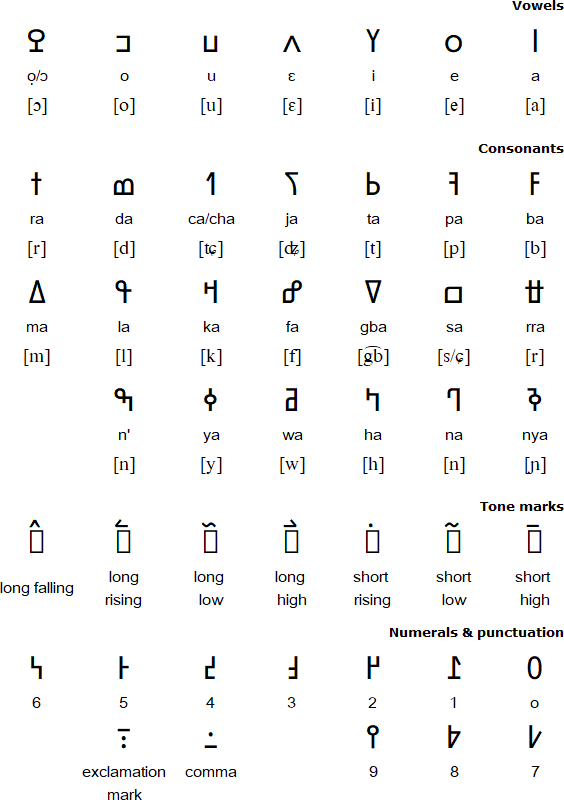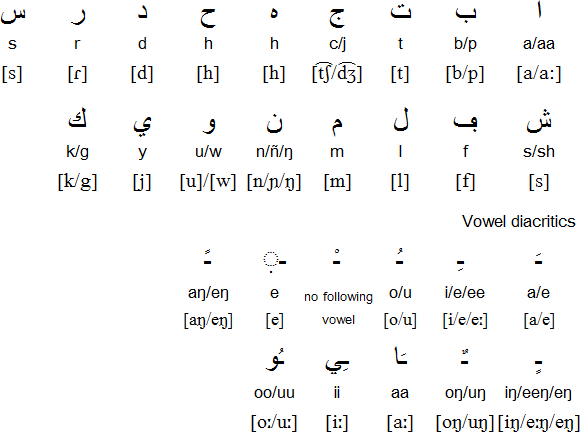Soulemayne Kante was born in 1922. As a young man, he was angered when he read that some foreigners considered Africans cultureless since they didn't have an indigenous writing system. In response, he developed Nko to give African people their own alphabet to record their cultures and histories in their native languages. He wrote hundreds of educational materials in Maninka using the N'ko alphabet. His aim was to explain complex or foreign ideas to speakers of Maninka using their own language. He wrote introductory books on subjects as diverse as astrology, economics, history and religion. Many of his works are still available from l'Association ICRA-N'KO.
Publications in the N'Ko alphabet include the Qur'an, textbooks on various subjects, poetry, philisphical works, a dictionary and a number of local newspapers.
Notable features
- Type of writing system: alphabet
- Direction of writing right to left in horizontal lines
- Diacritics placed below a vowel indicate nazalisation
- Diacritics placed over a vowel of syllabic indicate length or tone
Used to write:
Maninka (Maninkakan), or Eastern Maninka, is a group of closely related languages and dialects belonging to the southeastern Manding subgroup of the Mande branch of the Niger-Congo languages. There are about 3.3 million Maninka speakers mainly in Guinea and Mali, and also in Liberia, Senegal, Sierra Leone and Côte d'Ivoire. Maninka is closely related to Bambara.Dioula (Julakan), a Mande language spoken by about 2.7 million people in Burkina Faso, Côte d'Ivoire and Mali. It is about known as Jula and Dyula and is closely related to Bambara. It is written with the Latin, Arabic and N'Ko alphabets.
Bambara (Bamanankan), a Mande language with about 3 million speakers in Mali, Burkina Faso and Côte d'Ivoire, Senegal, Gambia, Guinea, Sierra Leone and Ghana.
N'Ko alphabet

Latin alphabet for Mininka

Arabic alphabet for Mininka

Sample text in Mininka
Adamadennu bɛɛ sɔdɔnɲa kakan, hɔrɔya dɔ, fabadenɲa dɔ ani sariya ta fan dɔ. Hankili ni sɔnɔmɛ ye alu bɛɛ ma, a kakan wo dɔ alu ye bakelenɲa sila lataaman alu ɲɔɔn tɛ.Links
Information about N'Kohttp://en.wikipedia.org/wiki/N'Ko_alphabet
http://www.kanjamadi.com
N'Ko Institute of America
http://www.fakoli.net
N'Ko Institute - information about N'Ko language and culture in N'Ko, English, French and Arabic (includes free N'Ko font): http://www.nkoinstitute.com
Information about Mininka
http://en.wikipedia.org/wiki/Maninka_language
http://www.ethnologue.com/show_language.asp?code=emk









.jpg)
.jpg)



.jpg)




0 comments:
Post a Comment
Note: Only a member of this blog may post a comment.